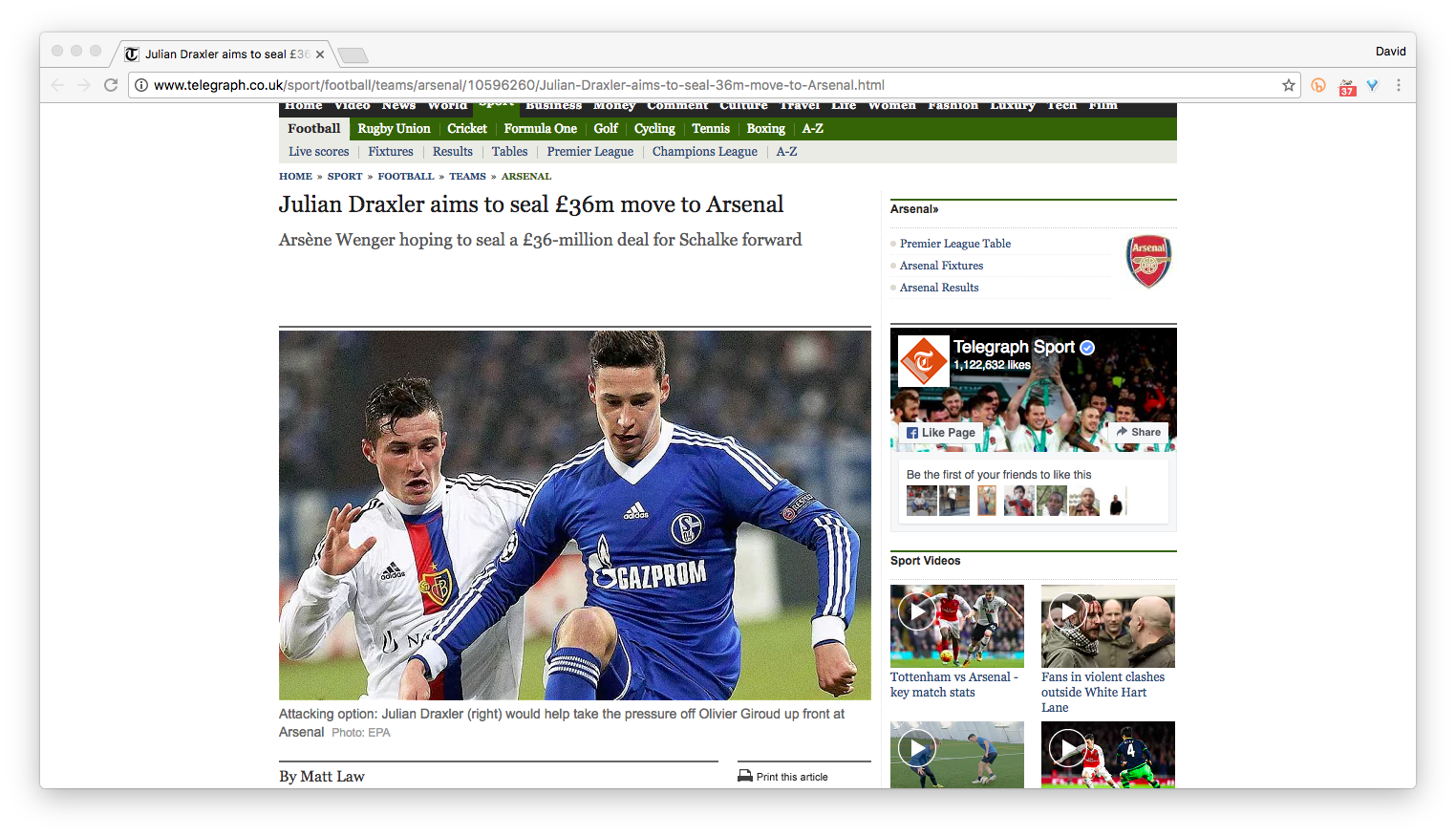All that time you spent reading about Axel Witsel isn’t wasted after all

Unless you are the obnoxiously talented Foer brother who wrote How Soccer Explains the World, a soccer journalist is rarely called upon to make sense of political developments. We get it: people who chronicle the ebb and flow of Lionel Messi’s leg tattoos are not obvious candidates to discuss the Montevideo Convention on the Rights and Duties of States. But these are strange times, so strange that Howler’s specific set of skills are of an unusual relevance.
The issue at hand is “fake news,” which is not to be confused with articles that have mere—or a surfeit of—reporting errors. Sometimes those two categories overlap, but the widespread perception is that large chunks of reporting are false. “Fake news” has become America’s latest meme on its descent into a post-truth hellscape, but has long been a feature of soccer journalism. While the factual outcomes of matches aren’t always contested, transfer rumors have created a landscape that in many ways presages the current political and journalistic moment.
Thing about fake news that I don’t get: no one would accept it for, like, sports. “DID YOU KNOW: The Eagles have won every Super Bowl."
— David Weigel (@daveweigel) December 14, 2016
A transfer rumor, by dint of being a story about something that might happen at some indeterminate future point, is the platonic ideal of a post-factual story. If, to pick an example completely at random, Arsenal doesn’t sign a striker that it was rumored to be after, that outcome doesn’t disprove their interest. Maybe things just didn’t work out. Plausible deniability is built into the story. The difference between a well-sourced transfer story that ultimately falls through and a piece of empty conjecture masquerading as reporting is therefore largely imperceptible. Not all transfer rumors, of course, are created equal but their form encourages a sort of selective skepticism: believe what you want to believe.
There are some environmental factors that contribute to this transfer rumor problem. First and foremost, it is the outgrowth of a media environment that encourages a certain amount of fan service. Readers like to find out about their teams, and transfer rumors cheaply satisfy that demand while encouraging a certain amount of eye-rolling in the direction of rival teams. This, in other contexts, is what hyper-partisan media looks like. Transfer coverage also has the effect of devaluing expertise: seasoned pros are wrong (and proven to be full of shit) with stunning regularity while cheap blogs can aggregate and fabricate with similar hit rates.
5 minutos al SUPERBOMBAZO de ese mercado
— Tancredi Palmeri (@tancredipalmeri) August 21, 2015
The fake news problem, remember, is more attitudinal than anything else. The belief that fake news is widespread makes it easy to dismiss anything you disagree with. The logical leap from “The Daily Mail’s transfer stories are full of shit” to “this story I don’t like that cites Daily Mail soccer reporting is probably untrue as well” is not particularly difficult. From there, it doesn’t take much for “fake news” to become a term devoid of any obvious meaning; it is a statement of your position on much of an industry as opposed to an objective analysis of any given article.
Many of the trends that underpin soccer’s “fake news” economy are also present in the current political environment. The division of political media into largely partisan verticals, where one can reasonably expect to see stories that play on the reader’s predictable emotional reactions, matches up with the devolution of sports media into team streams, blogs, and YouTube fan channels. In this environment, readers want to be fooled by some stories—He gave both of his kidneys to a street urchin…you won’t believe what happened next—or are prepared to be fooled by others. This doesn’t mean readers want to be lied to all or even most of the time, but existing structures allow for this kind of news to flourish while also being the object of unprecedented scorn. In that sense “fake news” offers something for everyone.
Antoine Griezmann plants seeds for a potential future move to David Beckham's potential future MLS team in Miami https://t.co/fmvAKw8KTc pic.twitter.com/4w9GuKuJj2
— SI Soccer (@si_soccer) December 21, 2016
There is also an undeniably economic quality to this whole episode. As Buzzfeed’s Craig Silverman has reported, teens in the Balkans can make decent money off fake news. (For a good dose of skepticism about the precise economics at play here, give Aram Zucker-Scharff a follow on Twitter.) Aided by the internet’s move towards standardization in design and social media distribution, anyone can set up a vaguely plausible-looking site with conjecture and fake scoops. Transfer rumors, like political fake news, are cheap to produce. (If you value real reporting, I humbly recommend a subscription to Howler Magazine.) The added beauty to this structure is that yelling about “fake news” — the latest branch in the internet’s “take economy”—is about as inexpensive as producing the initial news stories. All of these stories, no matter how critical they are of one another, form a shared ecosystem of aggregation and criticism.
Soccer doesn’t teach us how to solve the “fake news” problem, but it does offer us some perspective on it. This is not a new phenomenon that fields like sports journalism have not encountered in the past; it is an outgrowth of long-running trends. Good journalism can survive in such an environment, but large cancerous masses are also often lost in the process. That’s where we are—in soccer and in politics—and the way forward begins with an acknowledgement of how we got here.

